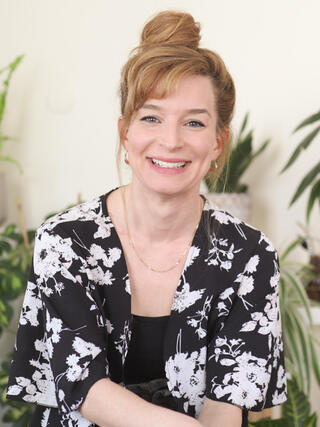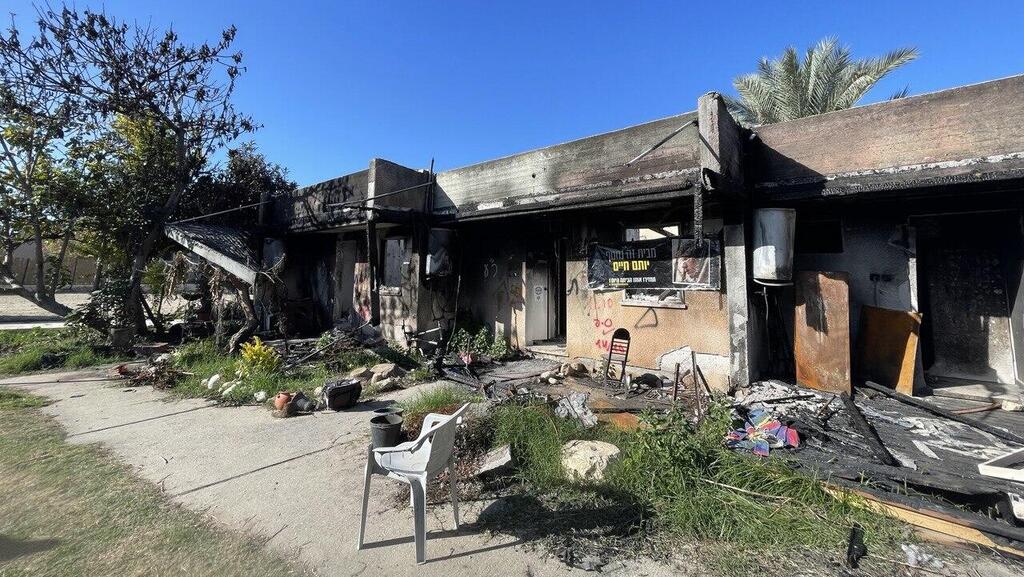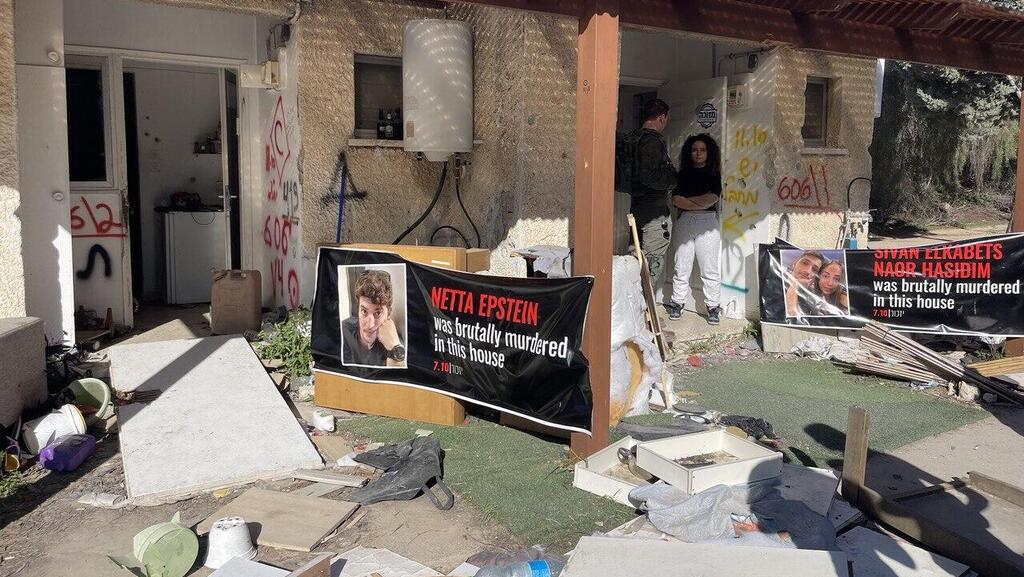Getting your Trinity Audio player ready...
A few months after the October 7 massacre, the elderly from Kibbutz Kfar Aza called me. Ages 65, 78, 90. They have no home. Each has lost something: one lost a child and a grandchild, and another's son is kidnapped. They ask me to meet them for a lecture. And what do they want me to talk about? Not trauma, not anxiety, not anger or loss. They want to talk about habits! I ask, what habits? What about everything that happened? And they, who have lost everything, say: "Don’t worry, we’re on it, but we’re also looking for content that will help us to go on living."
I arrive for the lecture, and they talk to me seriously about eating too much sugar, spending too much time on their phones, wanting to read more, and meeting friends. The encounter stays with me. How they, even they, want to keep living.
Viktor Frankl called it: "Yes to life, in spite of everything." I think we’re all asking this question now: Can we choose life, despite everything? Viktor Frankl also wrote: "Everything can be taken from a man but one thing: the last of the human freedoms — to choose one’s attitude in any given set of circumstances, to choose one’s own way."
It’s a powerful and thought-provoking statement, maybe even annoying. But what if we accept it for now? That sorry, but we didn’t sign up for a war, conflict, Iran. No. We had other plans. But now it’s here. And we can choose to ask "What will be?" or "What will we do?" We can say everything is terrible, or we can ask what small thing we can do to build a better life here.
People say they feel safest when they volunteer, take care of their children, listen to someone else, work. We feel safe when we do something when we are in control. We certainly don’t feel safe watching the news for hours, waiting for the next terrible thing. Passivity leads to pessimism. Activity leads to optimism.
Our actions create hope. The foundation on which our country stands. Psychologist Rick Snyder defined hope as a combination of the belief that things will be good, that I have the strength to handle it, and the actions that will lead to it. It’s not just hoping things will be good, it’s doing what we can to make it happen. Even if it’s focusing on the smallest habits, the small moments of joy.
So here’s a hopeful question everyone can ask themselves: If we fast forward 10 years, what would you like to say about this time? I’d like to say we found a way to talk to each other even when we disagreed. I’d like to say I understood what really matters to me, how I want to live. That I understood why this is my home. That our security was strengthened. That we didn’t leave anyone behind.
Each of you has an answer to this question. And from it, the next question arises: What do I need to do today, tomorrow, this month, this year – so that in 10 years, it will be true? What’s on me to create a better future? Maybe to apologize, listen fully, drive differently, share how I feel.
Helplessness is the feeling that there’s nothing I can do. That I’m trapped. It’s the defining feature of the traumatic experience; a feeling that something terrible is happening to me or my loved ones, and there’s nothing I can do about it. Most people will experience at least one such event in their lives.
Since October 7, the word "trauma" is in the air. Post-traumatic stress disorder (PTSD) can be assessed when we’re in the post, meaning after. And we’re not there yet. But here are some important, hopeful statistics. About 10% will develop PTSD. About 90% won’t. Among those who experienced trauma, by the way, an average of 50% will recover with treatment. And between 50% to 70% will experience post-traumatic growth. People not only survive, not only return to functioning, but report positive changes. Sometimes, the bottom is the point to push upwards from.
 Judith KatzPhoto: Rotem Kilnger
Judith KatzPhoto: Rotem KilngerPeople experience such growth in five dimensions:
They appreciate life more. Understanding how rare life is reminds us how lucky we are to live. How nice a hug is. How beautiful a child’s smile is. How nothing is taken for granted.
Relationships become more meaningful. After trauma, we invest more in the most important thing we have – each other. The suffering we’ve been through increases compassion, and empathy for others' pain. Just remember how much you’ve helped people you don’t even know since this all started.
Realizing how strong I am. Recognizing how vulnerable I am also reminds me how strong I am, both physically and mentally. Remember that soldier who was injured and chose to return and continue fighting. It’s the understanding that bad things can happen, but if I handled it – I can handle anything.
Priorities change. Realizing life can be shorter sharpens the fact that we only live once. So what really matters? What new opportunities await me? Which dream is it time to fulfill?
Spiritual growth. People believe there’s a meaning to why it happened. That God helped them get through it. That they had a role. Deep, new questions open up after trauma.
Growth is like a shattered mirror – you can glue it together and then look at yourself through the many cracks and fragments, or create a new piece of art from it. Growth doesn’t come from trying to restore reality to what it was before, or repressing, ignoring, and forgetting what happened. Growth comes from accepting that what happened – happened, and asking what can be done with it from here.
It’s on us. On every person and all of us together. No one else will come, and we can choose hope, and say yes to life despite everything. If they can in Kfar Aza, so can we, everyone.
Yehudit Katz is the host of the successful podcast "Thinking Good," an entrepreneur, consultant, lecturer, and writer focusing on positive psychology and practical, research-based psychology
First published: 08:44, 06.29.24



